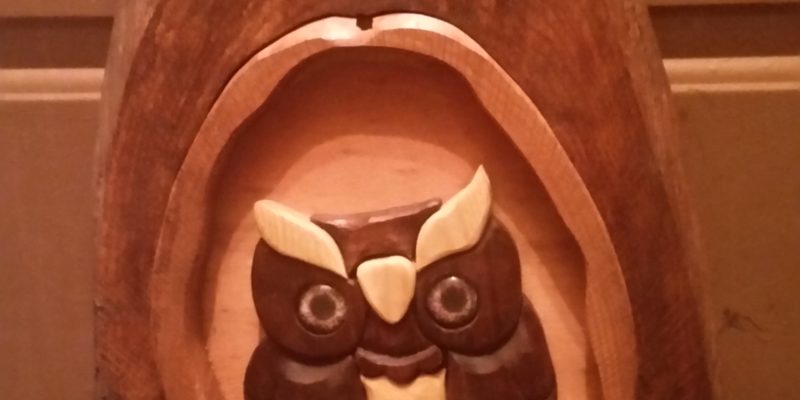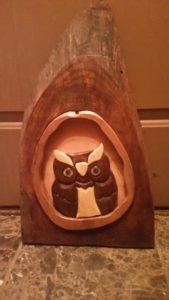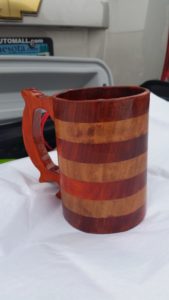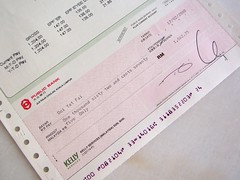What would your future-you have to say to you?
The no-pants guide to spending, saving, and thriving in the real world.
What would your future-you have to say to you?

If you want to make money, help someone get healthy, wealthy or laid.
This section was quick.
Seriously, those three topics have been making people rich since the invention of rich. Knowing that isn’t enough. If you want to make some money in the health niche, are you going to help people lose weight, add muscle, relieve stress, or reduce the symptoms of some unpleasant medical condition? Those are called “sub-niches”. (Side question: Viagra is a sub-niche of which topic?)
Still not enough.
If you’re going to offer a product to help lose weight, does it revolve around diet, exercise, or both? For medical conditions, is it a way to soothe eczema, instructions for a diabetic diet, a cure for boils, or help with acne? Those are micro-niches.
That’s where you want to be. The “make money” niche is far too broad for anyone to effectively compete. The “make money online” sub-niche is still crazy. When you get to the “make money buying and selling websites” micro-niche, you’re in a territory that leaves room for competition, without costing thousands of dollars to get involved.
Remember that: The more narrowly you define your niche market, the easier it is to compete. You can take that too far. The “lose weight by eating nothing but onions, alfalfa, and imitation caramel sauce” micro-niche is probably too narrowly defined to have a market worth pursuing. You need a micro-niche with buyers, preferably a lot of them.
Now the hard part.
How do you find a niche with a lot of potential customers? Big companies pay millions of dollars every year to do that kind of market research.
Naturally, I recommend you spend millions of dollars on market research.
No?
Here’s the part where I make this entire series worth every penny you’ve paid. Times 10.
Steal the research.
My favorite source of niche market research to steal is http://www.dummies.com/. Click the link and notice all of the wonderful niches at the top of the page. Jon Wiley & Sons, Inc. spends millions of dollars to know what topics will be good sellers. They’ve been doing this a long time. Trust their work.

You don’t have to concentrate on the topics I’ve helpfully highlighted, but they will make it easier for you. Other niches can be profitable, too.
Golf is a great example. Golfers spend money to play the game. You don’t become a golfer without having some discretionary money to spend on it. I’d recommend against consumer electronics. There is a lot of competition for anything popular, and most of that is available for free. If you choose to promote some high-end gear using your Amazon affiliate link, you’re still only looking at a 3% commission.
I like to stick to topics that people “need” an answer for, and can find that answer in ebook form, since I will be promoting a specific product.
With that in mind, pick a topic, then click one of the links to the actual titles for sale. The “best selling titles” links are a gold mine. You can jump straight to the dummies store, if you’d like.
Of the topics above, here’s how I would narrow it down:
1. Business and Careers. The bestsellers here are Quickbooks and home buying. I’m not interested in either topic, so I’ll go into “More titles”. Here, the “urgent” niches look like job hunting and dealing with horrible coworkers. I’m also going to throw “writing copy” into the list because it’s something I have a hard time with.

2. Health and Fitness. My first thought was to do a site on diabetic cooking, but the cooking niche is too competitive. Childhood obesity, detox diets and back pain remedies strike me as worth pursuing. I’m leaning towards back pain, because I have a bad back. When you’ve thrown your back out, you’ve got nothing to do but lie on the couch and look for ways to make the pain stop. That’s urgency.
3. Personal Finance. The topics that look like good bets are foreclosures and bankruptcies. These are topics that can cost thousands of dollars if you get them wrong. I hate to promote a bankruptcy, but some people are out of choices. Foreclosure defense seems like a good choice. Losing your home comes with a sense of urgency, and helping people stay in their home makes me feel good.
4. Relationships and Family. Of these topics, divorce is probably a good seller. Dating advice definitely is. I’m not going to detail either one of those niches here. Divorce is depressing and sex, while fun, isn’t a topic I’m going to get into here. I try to be family friendly, most of the time. Weddings are great topic. Brides are planning to spend money and there’s no shortage of resources to promote.
So, the niches I’ve chosen are:
I won’t be building 9 niche sites in this series. From here, I’m going to explore effective keywords/search terms and good products to support. There’s no guarantee I’ll find a good product with an affiliate program for a niche I’ve chosen that has keywords that are both highly searched and low competition, so I’m giving myself alternatives.
For those of you following along at home, take some time to find 5-10 niches you’d be willing to promote.
The important things to consider are:
1. Does it make me feel dirty to promote it?
2. Will there be customers willing to spend money on it?
3. Will those customers have an urgent need to solve a problem?
I’ve built sites that ignore #3, and they don’t perform nearly as well as those that consider it. When I do niche sites, I promote a specific product. It’s pure affiliate marketing, so customers willing to spend money are necessarily my target audience.
Today, I continuing the series, Money Problems: 30 Days to Perfect Finances. The series will consist of 30 things you can do in one setting to perfect your finances. It’s not a system to magically make your debt disappear. Instead, it is a path to understanding where you are, where you want to be, and–most importantly–how to bridge the gap.
I’m not running the series in 30 consecutive days. That’s not my schedule. Also, I think that talking about the same thing for 30 days straight will bore both of us. Instead, it will run roughly once a week. To make sure you don’t miss a post, please take a moment to subscribe, either by email or rss.
This is day 4 and today, you are going to make a budget.
Now that you’ve got your list of expenses and you’ve figured out your income, it’s time to put them together and do the dreaded deed. Your going to make a budget today. Don’t be scared. I’ll hold your hand.
Here are the tools you need:
Setting up the spreadsheet is dead simple.
Create a column for the label, telling you what each line item is. Create a column to hold the monthly payment amount. At the bottom of column 2, create a formula that totals your expenses. If you are including a bill that isn’t due monthly, use a formula similar to the day 3 income formula to figure out what you need to set aside each month. To figure a quarterly bill, multiply the amount by 4, then divide by 12. To figure a weekly bill, multiply by 52 and divide by 12.
Scoot over a few columns and do the same thing for your income.
Scoot over a couple more columns and set up a total. This is easy. It’s just a matter of subtracting your expenses from you income. Hopefully, this gives you a positive number.
To make this even easier, I’ve shared a blank budget spreadsheet. No excuses. If that simple spreadsheet doesn’t meet your needs, I’ve got a much more detailed version that includes categories. I use the detailed version.
Making a budget may be the most intimidating financial step you take, but everything else is built on the assumption that you understand where you money came from and where it is going. Without,it, your navigating a major maze based on a coin flip instead of a map.

When you’re setting up a niche site, you need to monetize it. You need to have a way to make money, or it’s a waste of time.
There are two main ways to do that: AdSense or product promotion. To set up an AdSense site, you write a bunch of articles, post them on a website with some Google ads, and wait for the money to roll in.
I don’t do that.
I don’t own a single AdSense site and have never set one up. This article is not about setting up an Adsense site.
My niches site are all product-promotion sites. I pick a product–generally an e-book or video course–and set up a site dedicated to it.
Naturally, picking a good product is an important part of the equation.
The most important part of product selection is that the product has an affiliate program. Without that, there’s no money to be made. There are a lot of places to find affiliate programs. Here are a few:
The first thing you need to do is sign up for whichever program you intend to use.
If you’re not going with Clickbank, feel free to skip ahead to the section on keyword research.
Once you are signed up and logged in, click on the “Marketplace” link at the top of the screen.
From here, it’s just a matter of finding a good product to sell. Here are the niches we’re going to be looking for:
I’m going to look for one or two good products in each niche. When that’s done we’ll narrow it down by consumer demand.
For now, go to advanced search.
Enter your keyword, pick the category and set the advanced search stats. Gravity is the number of affiliates who have made sales in the last month. I don’t like super-high numbers, but I also want to make sure that the item is sellable. Over 10 and under 50 or so seems to be a good balance.
The average sale just ensures that I’ll make a decent amount of money when someone buys the product. I usually aim for $25 or more in commissions per sale. Also, further down, check the affiliate tools box. That means the seller will have some resources for you to use.
This combination will give us 36 products to check out for back pain, unfortunately, none of the results are for back pain products. After unchecking the affiliate tools and setting the gravity to greater than 1, I’ve got 211 results. Sorting by keyword relevance, I see three products, two of which look like something I’d be interested in promoting. One has a 45% commission, the other is 55%. The X-Pain Method has an initial commission of $34 and claims a 5% refund rate. Back Pain, Sciatica, and Bulging Disc Relief pays $16, which will make it a potentially easier sale. I’ll add both to the list for further research.
I’m not going to detail the search for the rest of the niches. That would be repetitive. You can see my selections here:
Now we’re going to go through a few steps for each of these products.
We need to make sure the sales page doesn’t suck. If the site doesn’t work, is hard to read or navigate, has a hard-to-find order button, or just doesn’t look professional, it’s getting cut.
If it has an email subscription form, we’ll need to subscribe, then double-check to make sure our affiliate information isn’t getting dropped in the emails. If it is, the seller is effectively stealing commissions. In the interest of time and laziness, I’m going to eliminate anyone pushing for an email subscription. It’s harder–and time-consuming–to monitor that. On of my niche site had a seller completely drop their product. Instead, they pushed for email subscriptions so they could promote other products as an affiliate. Absolutely unethical.
Finally, we’re going to visit the checkout page. You need to do this from every links in the newsletter and the links on the sales page, just to make sure you’ll get your money.
The way to tell who’s being credited is to look at the bottom of the order page, under the payment information. It should say [affiliate = xxx] where xxxis your ClickBank ID. Anything else, and the product gets cut from the list.
When you are checking these, don’t click on every possible link at once. That confuses the cookies. Do one at a time. I tried to do it in one batch for this post and lost half of the cookies. If it weren’t for the fact that I already own one of the products and bought it through my own link and got credited, I would have been talking undeserved trash about thieving companies.
Sometimes, when you’re examining a product, it just doesn’t feel right. When that happens, drop it. There are millions of other products you can promote. In this case, I’m dropping the anger management program because, in my experience, angry people don’t think they are the problem. Here’s a life tip: If everyone else is a jerk, the problem probably isn’t everyone else.
Now we’re down to 10 products in 6 niches. At this point, we’re comfortable with the sales pages and we know that they are crediting commissions. As it stands right now, all of the products are worth promoting.
We’ll make the final determination after doing some heavy keyword research in the next installment. That’s where we’ll find out how hard it is to compete.
Any questions?

For the last year or so, I haven’t been writing much, which feels weird. I used to write three timer per week. I’d write about saving money, investing, frugality, sometimes, relationships and parenting.
But that stopped. Why?
When I started this site, I was about $110,000 in debt, and just starting my journey out of it. A few months before, I was looking into bankruptcy, because I didn’t know how to get out of debt.
For years, the ways I saved money, cut corners, and earned extra money was fodder for this site. Everything I did was about saving money, earning money, and paying off debt.
Now? I’m about 2 months away from being completely debt-free. I paid my mortgage off last month, and have about $10,000 in credit card debt at the moment. I know, I paid that off backwards, but there are reasons. Reasons I’ll share another time.
4 years ago, I was essentially working 4 jobs. My day job, my gun training business, my internet marketing business, and my websites(including this one). I was working all of the time. It was necessary, but it’s a path to burnout. Then, I changed jobs a couple of times, nearly doubling my day job’s pay. My business partner got promoted out of a position that generated leads for one of our businesses, then had an accident that the other shared business on hold for a while.
Suddenly, I had free time and enough money coming in that I didn’t need to work all of the time. It was a crazy place to be after spending more than a decade pretending to be a workaholic just to keep my head above water. (Here’s a secret: I’m incredibly lazy. I’m just the busiest lazy man I know.) So I started pursuing hobbies.
Linda and I have been taking ballroom dancing lessons and are nearly to the point that competing is a real possibility.
I cleaned out my garage and assembled a decent wood shop, which is something I’ve wanted to do roughly forever.
I’ve been taking blacksmithing lessons with my teenage son.
I’ve been playing games with my kids, dating my wife, and simply enjoying my life.
This site?
Through all of that, I haven’t known what to write about.
“Dear audience, this month, I paid my bills, didn’t go on vacation, and bought a drill press.”
“Dear audience, my debt went down another $500 this month.”
“Dear audience, I didn’t buy a car I can’t afford this month. Again.”
Those aren’t good articles. Financially–while paying off debt is disturbingly exciting–my life is very repetitive. That’s the hardest part about paying off a lot of debt. It’s good, it’s necessary, it’s boring. My wins have been spaced out by several years lately, and I haven’t been creatively frugal. Screw frugal. If you can afford some conveniences and luxuries, frugal sucks.
Anything new happening in my world that would apply to this site would make it read like an accountant’s ledger book. $100,000 minus $1500 plus $10,000 minus $300, ad nauseum.
Instead of inflicting boring accountancy on you, I’ve been absent.
What next? Who knows. I enjoy writing. I enjoy writing here. I’ve started writing a novel.
What would you like to see here?

Life is all about trade-offs. You trade your time for a paycheck. Your trade your paycheck for food, rent, and security. Don’t get so obsessed with saving and security that you forget to live your life. There are many good reasons to put your savings on hold in order to really live. Here are five of them:
1. You have an adequate emergency fund. You will never hear me advise against an emergency fund. If you don’t have one, stop reading this and get one. Go. Without an emergency fund, your budget is a financial crisis waiting to happen. With an emergency fund, you can weather life’s speed-bumps without watching them become total train-wrecks.
2. Your retirement is on autopilot. You are not allowed to stop saving and investing for retirement. Ever. Assuming you have a traditionally scheduled career that involves you working until you hit 65 and deferring a huge chunk of living until then, your income will cease when you retire. Do you know how long you will live? Do you want to spend your retirement broke and bored? Are you relying on the responsible financial management of the federal government to make sure you will still get your Social Security? Invest in your retirement and get this investment on autopilot so you can stop worrying about it.
3. Your income is set. I don’t believe in the fairy tale of a company being loyal to its employees. The aren’t. However, if you have a stable-ish job, an in-demand career, and some side-income coming from alternate sources, your emergency fund can be enough to carry you through the low times. That’s what it’s there for.
4. You have dreams. If you’ve always wanted to travel the world, follow a band on your, volunteer extensively, or anything else, it’s time to do it. Don’t postpone your passion.
5. Deathbed regrets suck. Very few people lie on their deathbed lamenting the things they did. Regrets tend to be focused on opportunities missed, skipped, or indefinitely postponed. Do the things that are important to you before it’s too late to do them. Don’t abandon your future in favor of current pleasures, but don’t forget to live, now.
Do you have any other reasons to stop saving?